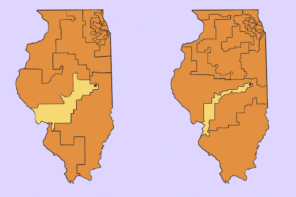Last week the Arab League hosted a high-level international conference aimed at improving Arab-West relations. It was symbolically important for many reasons, not least because the Arab League actually borders Tahrir Square. Yet meetings like these face two big problems:
The first is that we have to properly re-orientate how we define this ‘Arab-West’ relationship—both within the West and within the Arab world.
The cultural construct is this: ‘the West’ historically owes a great deal to the Arab world, which influenced it tremendously, both through Western Arab countries like Arab Spain (al-Andalus) and through continued ties through the ages. The West intervened as an imperial and colonialist power in different parts of the Arab world over modern history—and Western culture exists throughout the contemporary Arab world through globalization and popular culture.
But inside of this first problem itself are two key issues that need to be addressed: the place of those of Arab descent who are now European citizens (and every bit as European as those of any other ethnic decent), and the role of Islam in contemporary Western societies, as an indigenous Western religion.
Arab-West dialogue cannot be separated from those discussions because their outcomes will define how Western societies relate to those societies where Arabs and/or Muslims are demographic majorities—including Egypt, Libya, Yemen, Afghanistan, Iraq, etc. Comments during this meeting in Cairo showed that there are many in Europe who choose to ignore that—and they do so at their own peril.
The second, and perhaps most important problem considering the new openness spreading across the Arab world, is that the West tends to act before it listens. This is a new day, in a new world, and it’s not entirely clear that Western actors are properly prepared or informed. Some will inevitably rush in, and try to do all sorts of good, but fail miserably without realizing the local context.
This cuts across business, media, and diplomatic sectors, and is invariably due to either the outside actor attempting to interpret what the local scene is all about without actually relating to local interpreters, or else the outside actor deals with the ‘usual suspects.’ Those usual suspects are often drawn from an elite who are local but inevitably drawn from the same cloth as the Westerner in education, outlook, or both.
The Westerner then comes to Cairo, or Damascus, or Doha, or Casablanca, meets with ‘exotic Arabs’ (who are almost as exotic to the local population as the Westerners), is given a rather skewed picture of society mediated through the impressions and dreams of the elite, and then flies back to London or Washington “better informed.”
This is something that Tahrir Squared is trying to remedy by arranging focus groups for international organizations that want to reset the Arab-West relationship; groups that go beyond the usual suspects, and reach directly into the grassroots and civil society. But that model is still being resisted by many, both Westerners who want to go on with the old way of doing things, and those in the Arab world, where members of the elite fear their privileged position as ‘gate-keepers’ will be threatened.
Egypt is considered to be the heart of the Arab region, and the Arab region has a disproportionally huge impact on the entire Muslim world. There is a new dawn rising for Arab-West relations and business as usual is over. The sooner we all realize that, the sooner we can actually move beyond dialogue, and go towards actually doing something.


